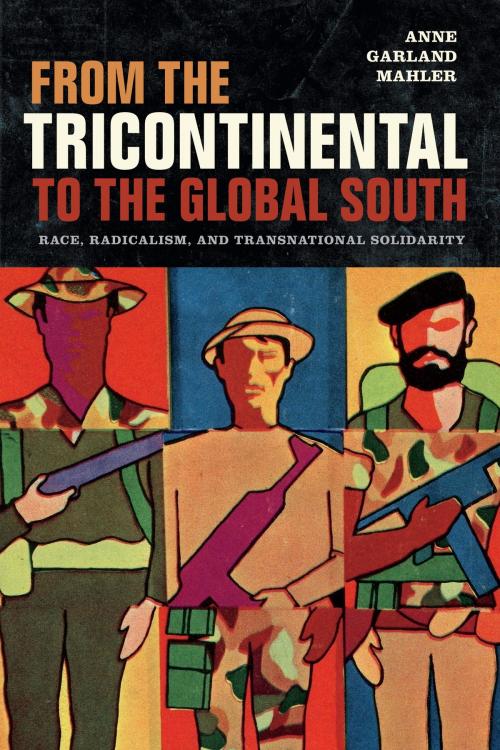From the Tricontinental to the Global South
Race, Radicalism, and Transnational Solidarity
Nonfiction, Social & Cultural Studies, Social Science, Cultural Studies, Ethnic Studies, Political Science| Author: | Anne Garland Mahler | ISBN: | 9780822371717 |
| Publisher: | Duke University Press | Publication: | April 19, 2018 |
| Imprint: | Duke University Press Books | Language: | English |
| Author: | Anne Garland Mahler |
| ISBN: | 9780822371717 |
| Publisher: | Duke University Press |
| Publication: | April 19, 2018 |
| Imprint: | Duke University Press Books |
| Language: | English |
In From the Tricontinental to the Global South Anne Garland Mahler traces the history and intellectual legacy of the understudied global justice movement called the Tricontinental—an alliance of liberation struggles from eighty-two countries, founded in Havana in 1966. Focusing on racial violence and inequality, the Tricontinental's critique of global capitalist exploitation has influenced historical radical thought, contemporary social movements such as the World Social Forum and Black Lives Matter, and a Global South political imaginary. The movement's discourse, which circulated in four languages, also found its way into radical artistic practices, like Cuban revolutionary film and Nuyorican literature. While recent social movements have revived Tricontinentalism's ideologies and aesthetics, they have largely abandoned its roots in black internationalism and its contribution to a global struggle for racial justice. In response to this fractured appropriation of Tricontinentalism, Mahler ultimately argues that a renewed engagement with black internationalist thought could be vital to the future of transnational political resistance.
In From the Tricontinental to the Global South Anne Garland Mahler traces the history and intellectual legacy of the understudied global justice movement called the Tricontinental—an alliance of liberation struggles from eighty-two countries, founded in Havana in 1966. Focusing on racial violence and inequality, the Tricontinental's critique of global capitalist exploitation has influenced historical radical thought, contemporary social movements such as the World Social Forum and Black Lives Matter, and a Global South political imaginary. The movement's discourse, which circulated in four languages, also found its way into radical artistic practices, like Cuban revolutionary film and Nuyorican literature. While recent social movements have revived Tricontinentalism's ideologies and aesthetics, they have largely abandoned its roots in black internationalism and its contribution to a global struggle for racial justice. In response to this fractured appropriation of Tricontinentalism, Mahler ultimately argues that a renewed engagement with black internationalist thought could be vital to the future of transnational political resistance.















